Displaying items by tag: TEAMORIGIN
Britain Rues the Waves, Ainslie Out of America's Cup
TEAMORIGIN, the yacht racing team established by Sir Keith Mills, and skippered by triple Olympic Gold Medallist, Ben Ainslie, announced today that it will not be challenging for the next America's Cup scheduled for 2013. Statement from Team Origin below:
The team, which was set up in 2007, has been waiting for three years to enter the America's Cup, which was delayed when the US team, BMW ORACLE Racing, took the Swiss team, Alinghi, through the US courts. The US team won the court battle and won the 33rd America's Cup Match to become the America's Cup Defender in February this year. The new US Defender has recently announced the format for the next America's Cup, including the rules and type of boat to be raced. TEAMORIGIN has also been briefed by the Defender and has made numerous comments on both the regatta rules and class rule.
Having now had a chance to analyse the race format, the proposed fixed wing catamaran boat, the timetable, rules and costs, Sir Keith has concluded that the 34th America's Cup is neither viable commercially, nor an attractive sporting contest for TEAMORIGIN. Therefore he has decided that the team will not submit a challenge when the challenge period opens on 1 November.
Sir Keith Mills, TEAMORIGIN Team Principal, "After three years of waiting in the wings to enter a British team in the America's Cup I am bitterly disappointed that we will not be competing. However, the format and timetable decided by the Defender, BMW/Oracle, is simply not viable for TEAMORIGIN. We have assembled an outstanding team, led by Grant Simmer and Ben Ainslie, and I am personally very sorry that they won't now get the chance to race for a British team in the next America's Cup".
Over the next couple of months TEAMORIGIN will be considering whether it will compete in other yachting events over the next few years.






























































